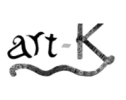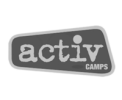NCFE CACHE Supporting Teaching and Learning Level 3 Diploma
Key Details
-
Price: £1930
-
Course Length: 18 months
-
Course Delivery: On Demand eLearning
-
Guided Learning Hours: 310
-
Accredited by: NCFE Level 3
The Diploma in Supporting Teaching and Learning is a comprehensive qualification designed for individuals working directly with children and young people in schools or colleges, particularly in roles that require specialist knowledge and skills. This diploma provides in-depth coverage of both the theoretical and practical aspects of supporting learning in an educational environment.
Building on the foundations laid in the Award and Certificate, the Diploma focuses on the full range of responsibilities expected of advanced support staff. It is suited to those working closely with teachers to plan, deliver, and review learning activities, and who may provide specialist assistance in areas such as bilingual support, special educational needs, and behaviour management.
The qualification includes both knowledge-based and competence-based units, requiring learners to demonstrate the application of skills in a real work environment. Key areas of study include:
-
Planning, delivering, and reviewing assessment strategies to support learning
-
Supporting bilingual learners
-
Supporting learners with special educational needs
-
Promoting positive behaviour and responding to behaviour that challenges
-
Health, safety, and safeguarding
-
Personal development and reflective practice
The course offers both breadth and depth of study and enables learners to acquire practical and technical skills alongside a solid core of professional knowledge. It is designed to support progression within the education workforce and may lead to more specialised roles or further study.
Course Structure
Understand the structure, ethos, and governance of educational institutions, including the different types of schools and the roles of education professionals.
Learn how to assess risk and respond to hazards, ensuring the health, safety, and welfare of pupils and staff in various situations.
Explore legislation, policies, and practices to safeguard children, including recognising signs of abuse and responding appropriately to disclosures.
Learn to communicate effectively, respect professional boundaries, and build relationships based on trust, confidentiality, and mutual respect.
Study patterns of development from birth to 19 years and the impact of factors such as disability, environment, and transitions.
Develop strategies to promote and encourage positive behaviour, support behavioural needs, and manage challenging behaviour constructively.
Gain skills to assist in planning, delivering, and reviewing learning activities under teacher supervision, adapting your support to individual needs.
Understand how to reinforce foundational literacy and numeracy skills across a range of subjects and daily routines.
Learn to support the appropriate and safe use of technology in learning, helping pupils engage with digital tools to enhance their progress.
Learn how to use assessment strategies to promote learning, supporting learners to review their learning strategies and achievements, and working with the teacher to review assessment for learning processes and outcomes.
Learn how to reflect on your performance, respond to feedback, and identify opportunities for continuous personal and professional development.
Understand the importance of speech, language and communication for children and young people’s overall development and interaction with others. It also explores ways to support children and young people in the development of their speech, language and communication skills.
Explore how to help pupils who are learning English as an additional language access the curriculum effectively.
Gain skills to support learners with SEND, use inclusive strategies, and collaborate with specialist staff.
Learn how to support children and young people through transitions in their lives, recognise and respond to signs and indications of transitions.
Learn how to support children and young people’s play and leisure and help children and young people to manage risk and challenge. This unit also explores enrichment through an extra-curricular activity.
Further Details
Tuition fees for our NCFE CACHE Level 3 Diploma for Supporting Teaching and Learning
are £1,930 which includes an up front £250 registration fee, payable upon acceptance of a place with us.
We also offer a monthly instalment plan: £250 registration fee followed by 12 monthly payments of £140.
There are no formal entry requirements. However, learners must:
-
Be aged 16+
-
Be working or volunteering in a school or college (minimum 100 hours)
-
Have a good standard of written English
-
Be able to complete written and practical tasks
If you do not currently have a placement, we recommend securing one before enrolling on this qualification.
Assessment is ongoing and designed to recognise your progress and practical skills throughout the qualification.
You’ll complete:
-
Written assignments for each unit, demonstrating your understanding of key knowledge
-
Professional discussions, reflective journals, and case studies to explore real-life applications
-
Workplace observations by a qualified assessor, to confirm that you can apply your skills confidently and competently
-
Work products, such as lesson plans, feedback forms, and records of pupil progress
You will be required to complete a minimum of 200 hours in a school or college setting. These hours provide the context for your assessments and allow you to demonstrate your practical competence.
There are no formal exams. Instead, you’ll build a portfolio of evidence that is internally assessed and externally quality assured by NCFE.
This course is suitable for:
-
Aspiring or current teaching assistants, learning support assistants, or SEND support workers
-
Those working in primary, secondary or specialist schools, or in colleges supporting learners aged 5–19
-
Learners who want a comprehensive, practical qualification that meets the Level 3 Supporting Teaching and Learning framework
-
Anyone working or volunteering in a school or college who can commit to a minimum of 200 hours in a relevant setting
Do you still have questions?











